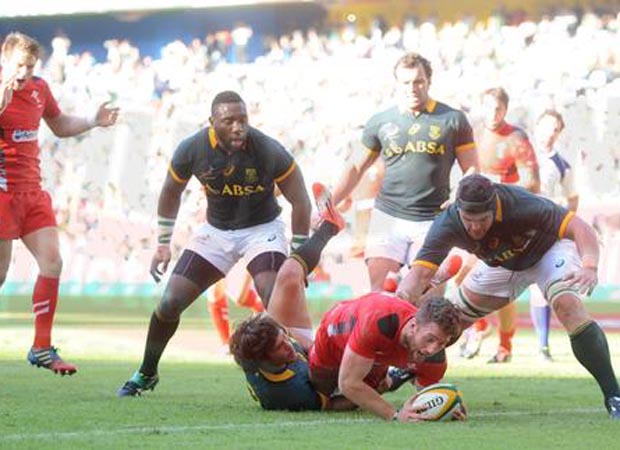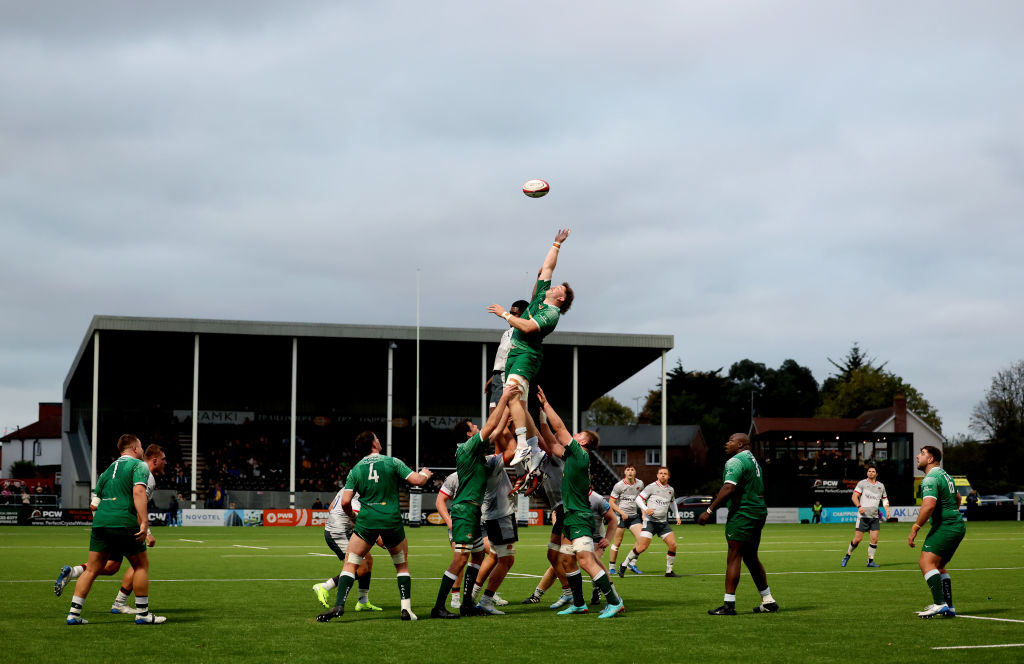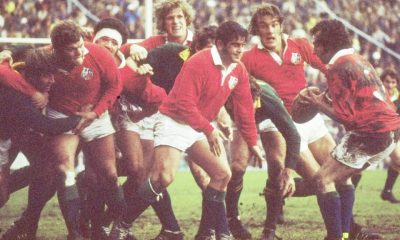
 And so for all their big-game heroics by the banks of the Crocodile River, somehow it still ended in tears as it always does in South Africa.
And so for all their big-game heroics by the banks of the Crocodile River, somehow it still ended in tears as it always does in South Africa.
Just when it appeared as though Wales had at last exhausted every conceivable way of turning a winning position to dust, they found a new one – a hitherto untried method of madness in a part of the country noted for its nuts, as in food not to be confused with lunatics.
Barely two minutes stood between Wales and the historic first Test win under African skies as due reward for their performance when Liam Williams committed the fateful foul. His illegal shoulder charge on Cornal Hendricks, delivered in hurtling response to George North allowing the wing to give him the slip, turned out to be the stuff of nightmares.
They will not be eased by the grim realisation that the harum-scarum Welsh full-back would have been better off missing the Springbok instead of smashing him into touch with a shoulder charge so blatant that it left Steve Walsh no alternative but to award a penalty try.
No sooner had the Australian-based ref decided on that course of action, the TMO, New Zealander Glenn Newman, reassured him: “You’ve got no option, Steve.”
The decision showed how times have changed. JPR Williams’ shoulder-charge on Jean-Francois Gourdon during the 1976 Five Nations’ decider against France in Cardiff has long down in folklore because a Welsh Grand Slam hinged on the tackle, perfectly legal back then.
Had his namesake not done the same, Hendricks would have scored in the corner and left right-footed Morne Steyn a touchline conversion from the wrong side, eminently missable even for a practitioner of his calibre. Instead the match-winning kick became a formality.
Wales have now lost four Tests in the Southern Hemisphere by one point in fewer than three years – South Africa in Wellington (16-17), France in Auckland (8-9), Australia in Sydney (19-20) and now this. How many more times does it have to happen?
If once could be deemed unlucky and twice perhaps doubly so, three times is downright reckless, the fourth inexcusable. The more it happens to the same team, the more the luck factor diminishes even if Wales, as good as they were bad the previous week, all but struck a mighty blow for the Six Nations after France and England had been wiped out earlier.
Viewed in the cold light of day, it amounts to a chronic inability to win tight matches. In Sydney two years ago, Wales lost because they gave away a late penalty.
In Wellington at the World Cup, they lost because Rhys Priestland and James Hook missed shots at goal. At Eden Park in the semi-final, Stephen Jones spurned the chance of a late drop-goal and with it all chance of Wales winning despite Sam Warburton‘s early red card had gone.
Three yellows in successive weeks have come at a fearful price. Just as Jamie Roberts’ in Durban cost Wales two tries, so the binning of Luke Charteris and Dan Biggar yesterday cost them two more.
Again, Wales can have no complaint about Walsh in either case, each a reflection of sheer Welsh desperation in trying to collapse the Springbok maul. The yellow card count over the 11-Test season stands at nine although how Liam Williams avoided taking that into double figures only Walsh can answer.
The cruelty of it all will take some getting over for the Wales squad as a whole and Alex Cuthbert in particular. He made the first try for Roberts, scored the second and played merry hell with the Springboks.
He was, by some distance, the best back on the field – some accolade given that the cast included Bryan Habana, Willie le Roux and North. The back-row of Danny Lydiate, Taulupe Faletau and Josh Turnbull worked themselves to a standstill but there’s still no getting away from the crucial question. How could South Africa endure chunks of the match in a deep hole yet still clamber out? And how could Wales – 17-0 clear after half an hour and 30-17 ahead going into the last ten minutes – contrive to come up a point short?
There were 95 seconds on the clock once Steyn nudged the Boks ahead for the first time. As it turned out, Wales had more than three minutes in which to manoeuvre into position for the winning drop.
But Wales were unable to find the precision and patience to make it possible. Instead they gave the admirable Biggar one shot from all of 40 metres and when that fell short, they still had time to set him up for another.
As Wales went through almost 20 phases and the tension became harder to bear with each one, Biggar tried again from nearer 50 metres only for his shanked attempt hardly to get airborne.
Not since Francois Pienaar’s World Cup-winning crew escaped defeat in the semi-final against France almost 20 years earlier had anyone seen a Springbok jail-break on such a massive scale.

2 Comments
You must be logged in to post a comment Login
Leave a Reply
Cancel reply
Leave a Reply
You must be logged in to post a comment.

English Championship
What the new Championship format could mean for English rugby


























Pingback: Belcampo Anya Fernald
Pingback: faceless niches